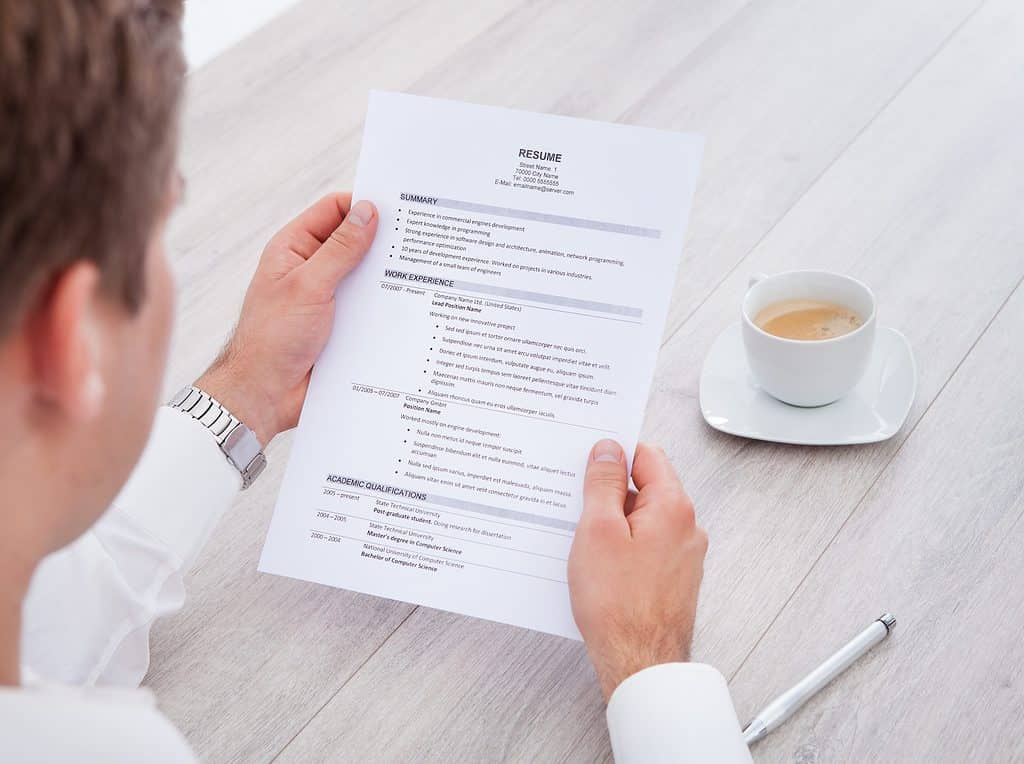Recruiters are not ignoring your experience, they just cannot see it. Discover how to satisfy AI filters and access the...
READ MORE
Reading Time: 7 minutes
If you’re planning to apply for a new role in Switzerland, one of the most important documents you’ll need is a resume. Your resume is your first impression on potential employers, so it’s crucial to make sure it’s well-written and showcases your skills and experiences in the best possible light. However, if you’re not familiar with the Swiss job market, you might be wondering how to write a resume that meets Swiss standards. In this article, we’ll provide a step-by-step guide on how to write a resume for a new role in Switzerland.
Are you considering working in Switzerland as a foreign national. Check out this guide: https://www.ch.ch/en/foreign-nationals-in-switzerland/working-in-switzerland/
Before you start writing your resume, it’s essential to understand the Swiss job market. Switzerland has a diverse economy with many different industries, including banking and finance, pharmaceuticals, and technology. Each industry has its own specific requirements, so it’s crucial to tailor your resume to the job you’re applying for.
Before we dive into the specifics of how to write a Swiss-style resume, it’s also important to understand the cultural context behind it. In Switzerland, resumes are typically written in a concise, factual style that emphasizes your qualifications and experience. Swiss employers value professionalism and attention to detail, so it’s important to present your resume in a clear, organized format.

Swiss employers prefer resumes that follow a chronological format, starting with your most recent job and working backwards. This allows them to see your career progression and how your skills and experiences have developed over time.
A chronological resume is a type of resume that presents a candidate’s work experience in reverse chronological order, starting with the most recent job and working backwards. This format is the most commonly used resume format and is preferred by many employers because it is easy to read and understand.
The structure of a chronological resume typically includes the following sections:
Contact Information: This section includes the candidate’s name, address, phone number, and email address.
Professional Summary/Objective: This section provides a brief overview of the candidate’s skills, experience, and career goals.
Work Experience: This section lists the candidate’s work experience in reverse chronological order, starting with the most recent job. For each job, the candidate should include the job title, the name and location of the company, the dates of employment, and a description of the duties and responsibilities.
Education: This section includes the candidate’s educational background, starting with the most recent degree earned. For each degree, the candidate should include the name of the institution, the degree earned, and the date of graduation.
Skills: This section lists the candidate’s relevant skills and abilities, such as computer skills, language proficiency, or other technical or specialized skills.
Certifications and Licenses: This section lists any relevant certifications or licenses held by the candidate, such as a professional certification or a driver’s license.
References: This section may include the names and contact information of professional references who can vouch for the candidate’s qualifications and work ethic.
In Switzerland, it is generally expected that your resume includes the following personal information:
It is important to note that Switzerland has strict data protection laws, and employers are not allowed to ask for certain personal information, such as your religion, political views, or health status. Therefore, it is generally not necessary to include this information in your resume unless it is directly relevant to the position you are applying for.
It’s common to include a professional photo on your resume. The photo should be recent, clear, and professional-looking. Make sure to wear appropriate attire and have a neutral background.
Write a professional summary Your resume should start with a professional summary that highlights your skills, experience, and achievements. This summary should be brief and to the point, and it should make a strong case for why you’re the best candidate for the job.
The bulk of your resume should be focused on your work experience. Start with your most recent job and work backwards, listing the name of the company, your job title, and the dates of employment. Use bullet points to highlight your key accomplishments and responsibilities for each job. Make sure to use strong action verbs and quantify your achievements wherever possible.
Rather than listing every job duty you’ve ever had, focus on highlighting your key skills and achievements. Use bullet points to showcase specific accomplishments, such as sales figures or successful projects you’ve led. This helps employers quickly see your value proposition and how you can contribute to their organization.
In addition to your work experience, it’s also important to highlight any relevant education or training you have received. In Switzerland, it’s common for job applicants to have a strong educational background and listing any degrees or certifications you have earned can set you apart from other candidates.
For applications in Switzerland, it is essential to include relevant education and training. Pay attention to the requirements listed in the job advert as most will state the minimum requirements to apply. It is also normal practice for job applicants to be asked for copies of certificates for the education and training listed.

When applying for a new role, it’s important to tailor your resume to the specific job description. This means using keywords and phrases from the job posting, as well as highlighting relevant skills and experiences. Avoid using a generic, one-size-fits-all resume, as this can make it seem like you’re not really interested in the job.
Swiss resumes are typically one to two pages long, so it’s important to keep your resume concise and to the point. Avoid using unnecessary graphics or fancy fonts, and make sure your formatting is consistent throughout the document. Use a professional tone and avoid any slang or informal language.
Switzerland has four official languages: German, French, Italian, and Romansh. If you’re fluent in any of these languages, make sure to highlight this on your resume. Language skills are highly valued in Switzerland, especially in the banking and finance industry.
It’s essential to use the appropriate language for the job you are applying for. If you’re unsure which language to use, it’s best to write in the language in which the position is advertised.
It’s also important to keep in mind that in Switzerland, CVs are often sent electronically, so it’s essential to use a clear and legible font and to ensure that your CV is optimized for both print and digital use.
Writing a resume for job applications in Switzerland requires attention to detail, clarity, and conciseness. By following the tips and tricks outlined in this article, you can create a compelling and professional document that will catch the attention of potential employers. Remember to tailor your resume to the job you’re applying for and proofread it carefully before submitting. With these steps, you’ll be well on your way to landing your dream job in Switzerland.
5 Resume Trends for 2023 to Boost Your Job Search If you are preparing to search for a new job in the …
Are you looking for more information on where to find jobs in Switzerland?
Check out this guide: https://www.expatica.com/ch/working/finding-a-job/find-jobs-in-switzerland-102375/

I have spent 10 years recruting for regional and global companies based in Switzerland. I know how companies recruit and what the hiring managers look for in a resume.
If your next job application needs to be submitted in English, please reach out and I can prepare a professionally written resume. Email me today.
Best of luck,
Dave Crumby
Your Career Optimiser | Certified CV Writer
Winner of Most Supportive Career Branding Service 2022
Recruiters are not ignoring your experience, they just cannot see it. Discover how to satisfy AI filters and access the...
READ MORELearn how to write a targeted CV using evidence from recent hiring data. A realistic approach that fits your busy...
READ MOREA data-led guide to why LinkedIn visibility matters in a slower job market, with insights from the latest Huntr report...
READ MOREA data-led guide to improving your CV using insights from Huntr’s Q2 2025 report. Learn the small changes that help...
READ MORE